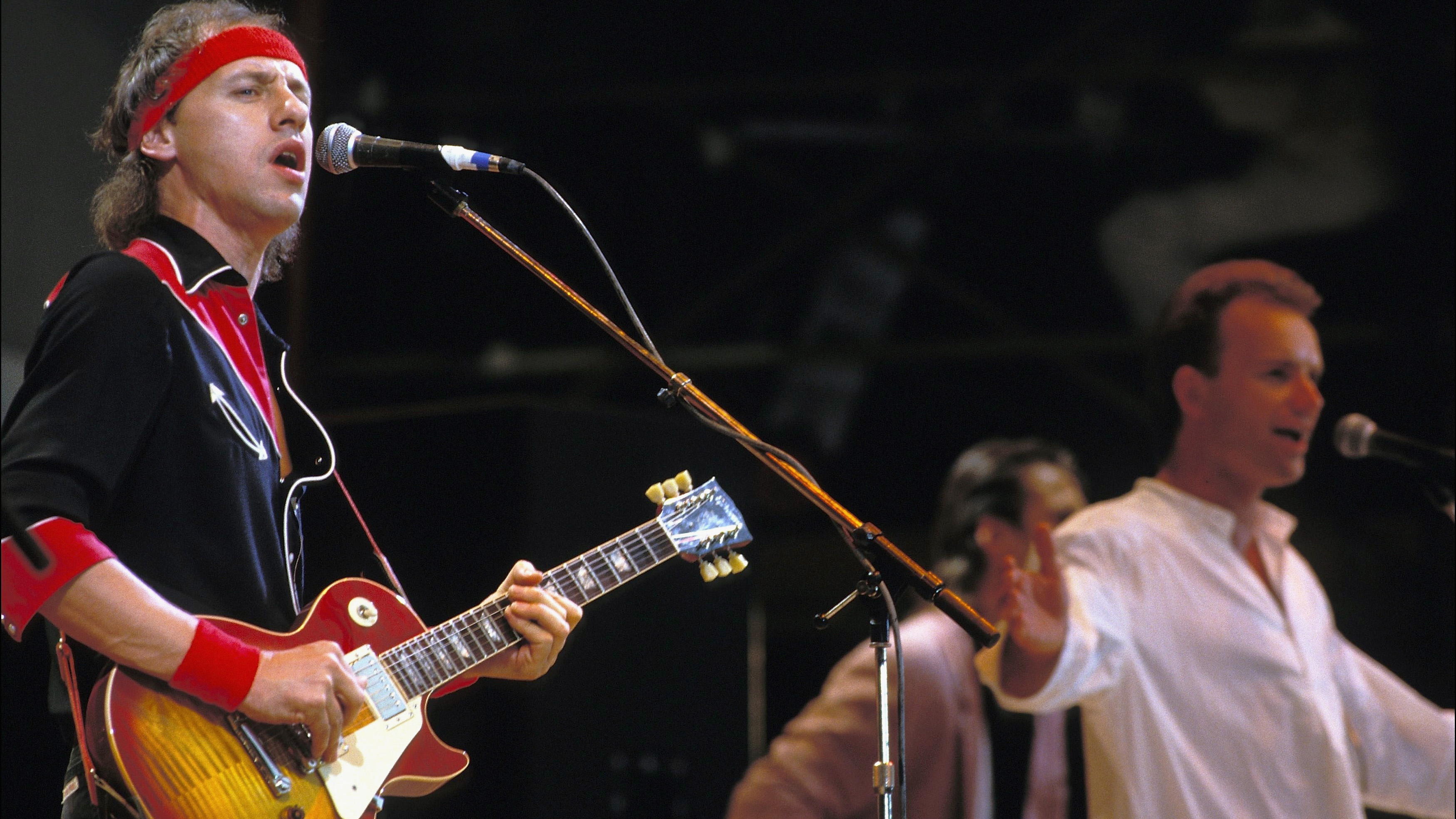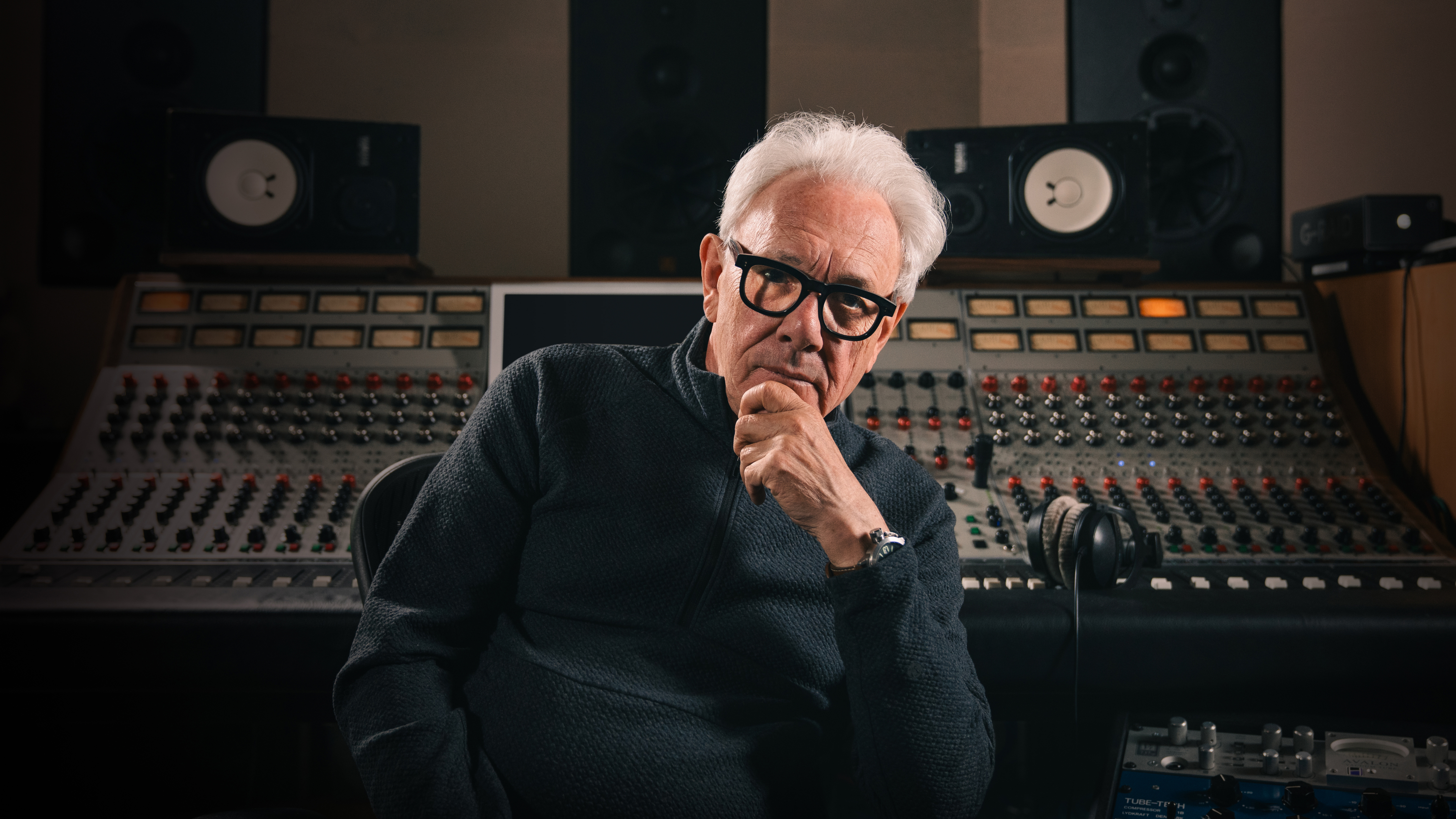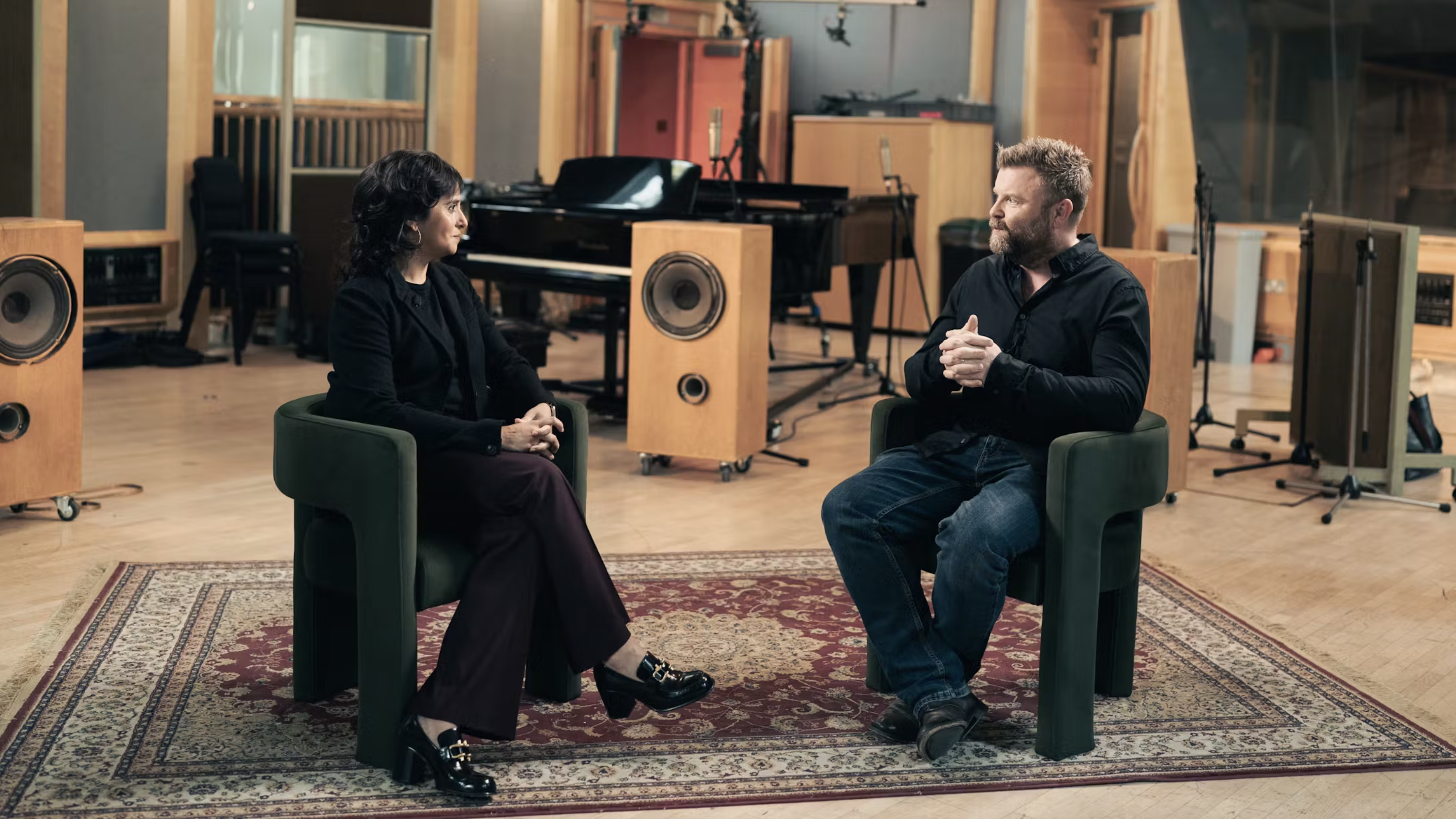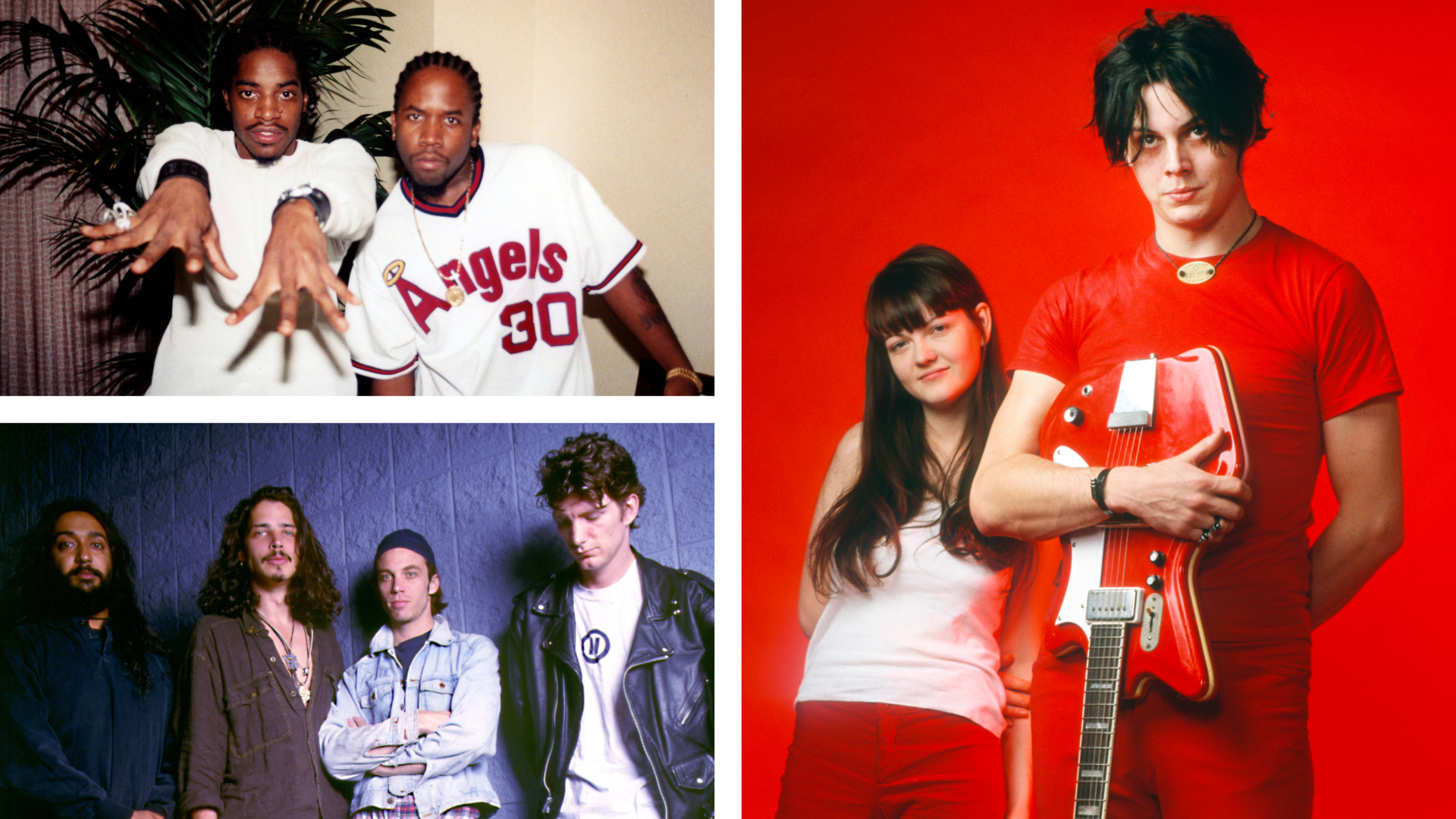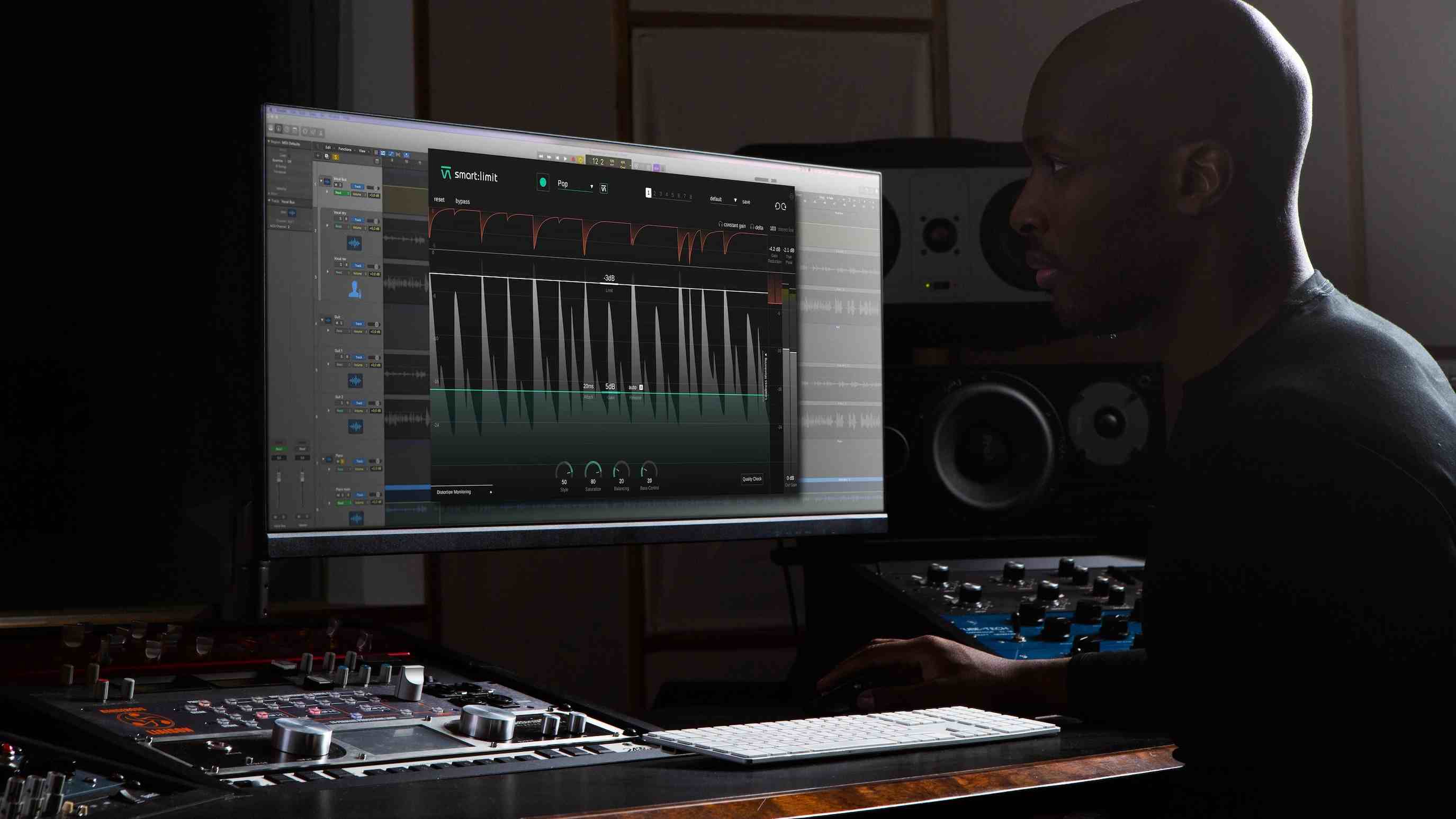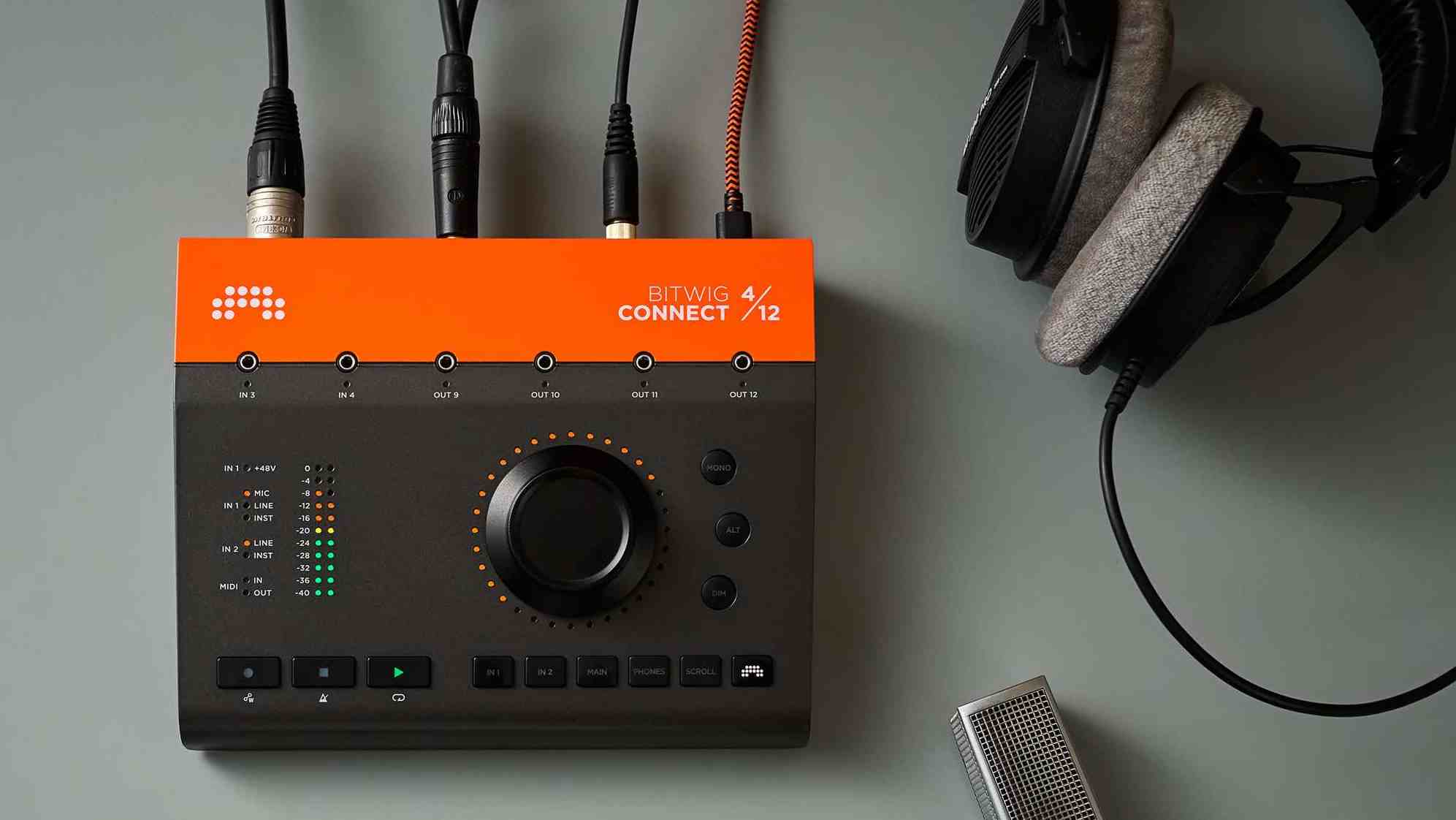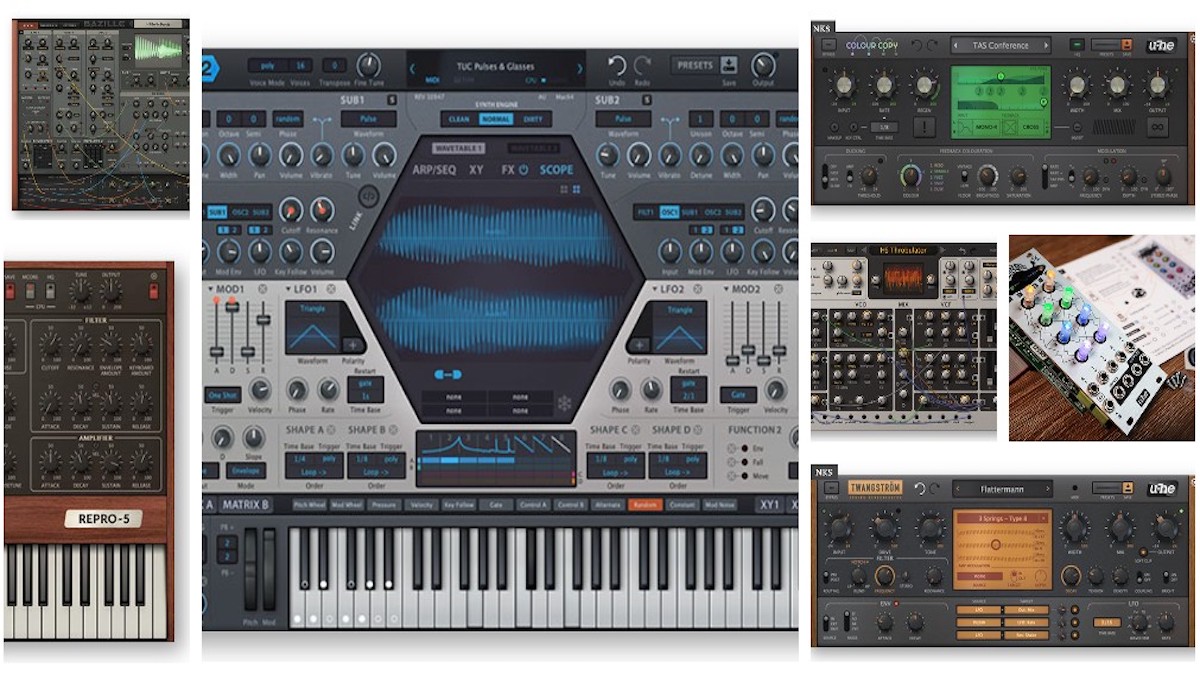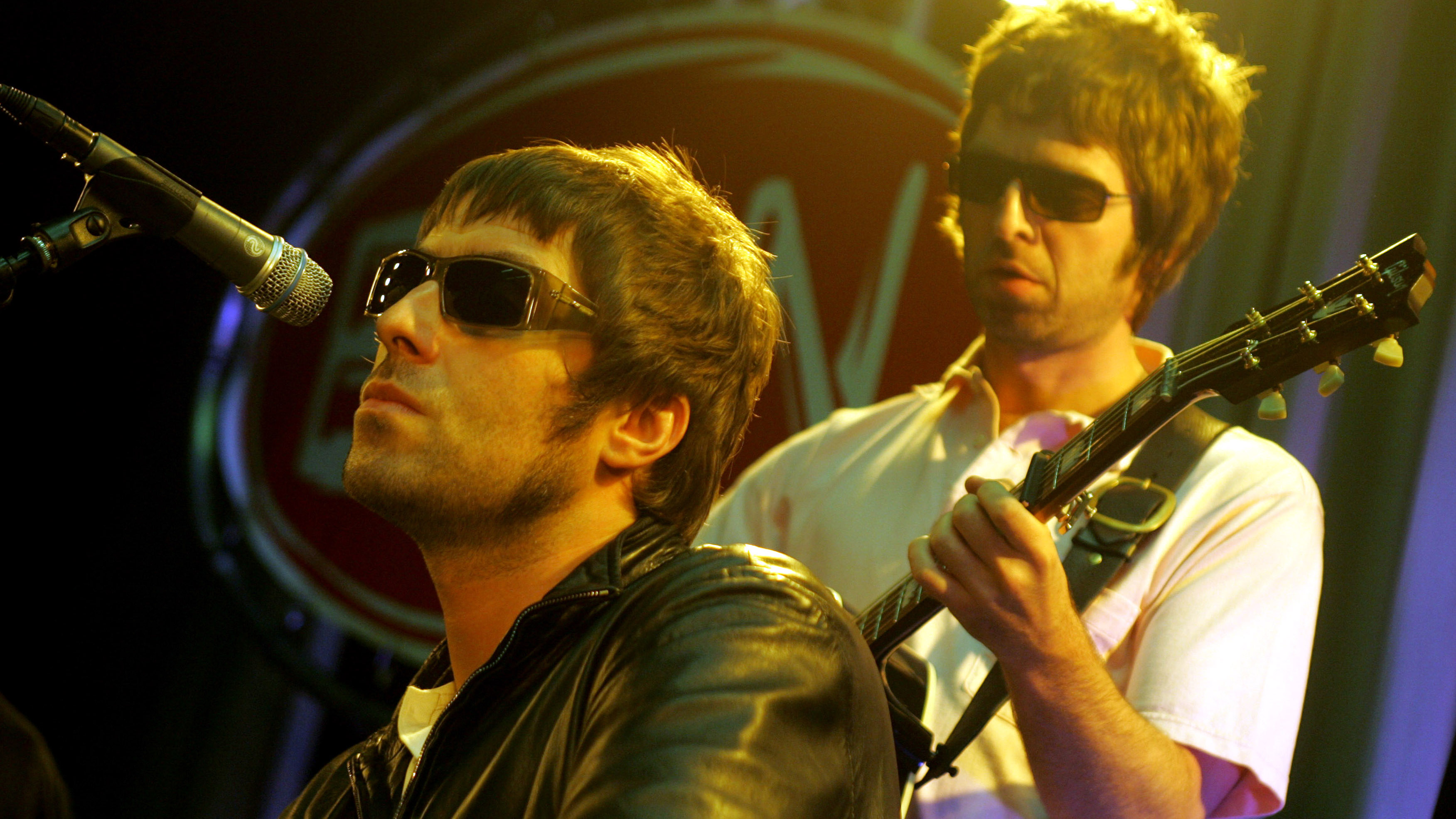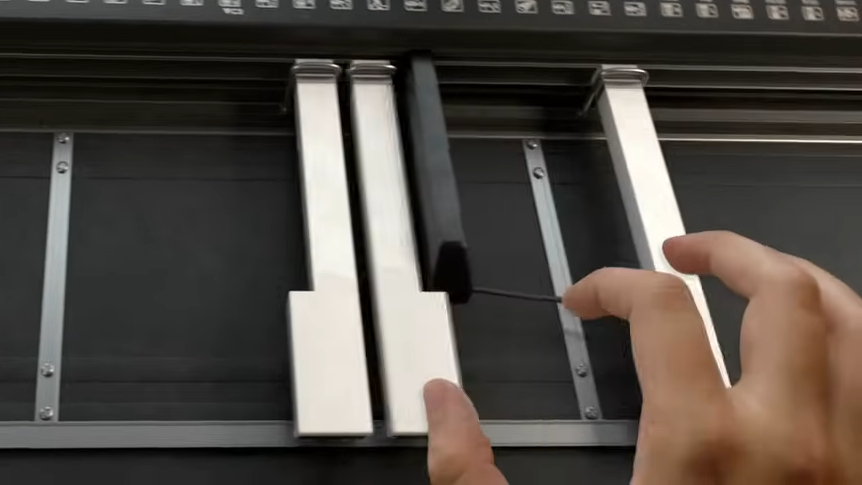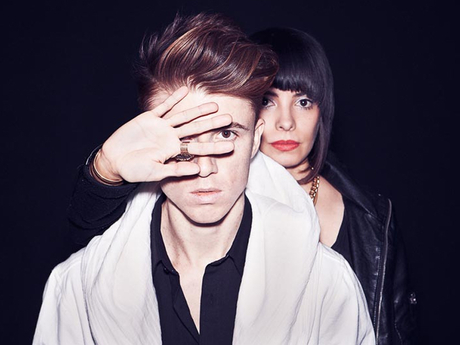
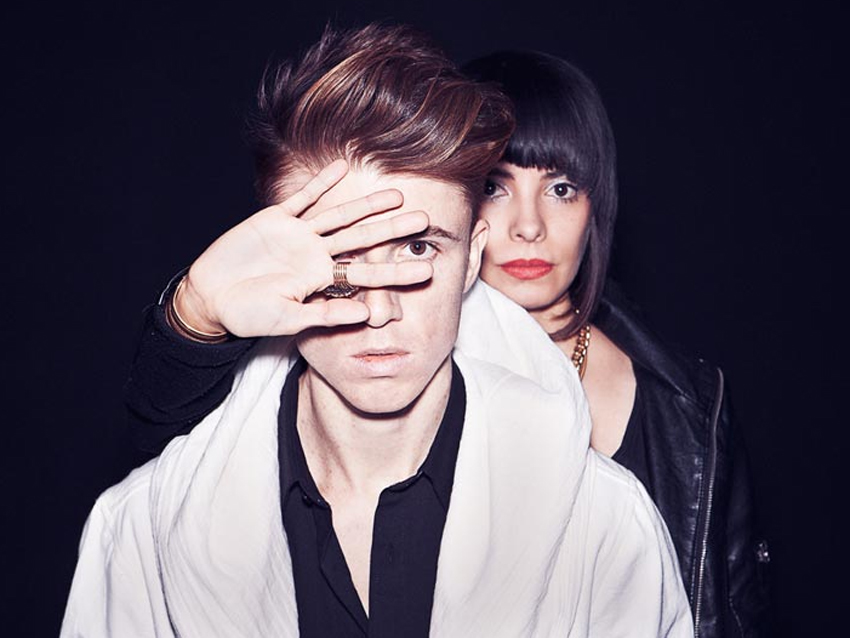
And then there were two... School Of Seven Bells' Benjamin Curtis and Alejandra Deheza.
Band lineup changes are seldom easy, but when you consider the 2010 scenario of School Of Seven Bells, when their co-lead vocalist, Claudia Deheza, who happens to be the identical twin of the group's other singer, Alejandra, split mid-tour - now, that's something else altogether.
When asked how he dealt with a potential death-blow situation, guitarist and band leader Benjamin Curtis says calmly, "We just looked at what was in front of us, Ali and me, and got on with it. It was a challenge, but we moved ahead. Within 24 hours, we were off and running again."
And the new dynamic - the core of SVIIB is now down to the core of Curtis and Ali Deheza - has made for a happier band. "No disrespect to Claudia, but it's really hard to make music when somebody doesn't want to be there," says Curtis. "She didn't want to do this anymore, and Ali and I don't ever want to stop doing it. Once you remove the problematic element from the equation, everything is sweeter."
As Curtis prepared to hit the road with SVIIB for a US tour, we chatted about the band's new lineup, their mesmerizing new album, Ghostory, and how he creates sounds both heavenly and hellish.
The band vibe got better once it was down to you and Ali, but did the writing change substantially?
"I don't know if it did, really. We realized that aesthetically and visually we were different, and people might not know what to expect from us, but we viewed it as a big opportunity, like, 'Hey, we can make any kind of record we want.' We're not trying to throw the baby out with the bath water and do something too different, but we did want to embrace the notion and kind of seize the moment."
Get the MusicRadar Newsletter
Want all the hottest music and gear news, reviews, deals, features and more, direct to your inbox? Sign up here.
How much did current electronic music impact the making of the new album?
"It completely informs our work. I love hearing what everybody is doing, and I really love sculpting sound as part of the songwriting process. The way that people twist technology is pretty exciting. As for ourselves in the electronic world, I'm not really concerned how we fit into any one genre; obviously, we're more interested in writing songs. I don't want to be tied to any one scene."
Do you have any set process for writing? Do you sit down with a guitar and make demos? Do you record snatches of electronic sounds and turn them into songs?
"For the first couple of records, it was much more of a collage process. We'd sit down and twist a sample or a synth tone and just record a vocal around it, something simple and basic. I guess that was a way to try to figure out what kind of band we were trying to be, because of course we knew that vocals are the center of the universe, musically speaking.
"This time around, we did do more traditional demos. It's funny, though: I don't ever write on the guitar. I'll write on the keys, I'll write on the bass. I'll write on anything with strings - but never guitar. For some reason, I just don't feel the same inspiration as when I sit at a keyboard or even a computer screen."
There's so many incredible soundscapes on Ghostory. Sometimes it's hard to tell the difference between guitars and keyboards.
"That makes me very happy to hear you say that, actually. A lot of times it is a guitar. I love doing that - taking sounds that I make with my guitar, sampling them and turning them into keyboard patches. The great thing about the guitar is, there's a certain cacophony you can get in the harmonics that is very difficult to synthesize.
"The guitar is so interactive: the way you stand with it in relation to your amp, how loud it is, how you play, what size the room you're in - everything affects what you end up with, and fractions can make all the difference."
"On the record, I'm not trying to confuse the listener; I'm just going for a sound. I like layers. If there's a keyboard part, then there's probably a bunch of guitars doing the same thing. I like to hear notes rather than performance, and to that end, I'll obscure sounds so that you don't dwell on playing per so."
On the song The Night, however, you can tell that it's definitely a guitar - several of them, in fact. How many different guitar tracks did you record there?
"There's four guitar tracks on that song. Three are clean - one left, one right and one in the middle - and the fourth one is dirtier, and it's done in stereo."
There's two versions of Lafaye - the album version and a remix by the Scissor Sisters. Why did you want to change it up?
"I don't know. I just like to hear our songs in different contexts. That's why we do shows in so many different ways - we do acoustic sets, and we different versions of the live band all the time. To me, the songs stand on their own, but I like when they get abstracted. It's fun."
You're a quite capable drummer, yet you don't play live drums on the album.
"I don't know why I didn't. It's been a while since I played the drums, really. Increasingly, I find that the more I do, the less interesting our records get. When somebody else puts his or her touch on a album, it's very easy for me to listen to it. There's a certain mystery to it that's different than if you did it yourself. And Chris Colley is a great drummer, so I certainly can't sit here and think I would have done a better job."
What were the main guitars you used on Ghostory?
"There were really only two: I used my Hagstrom Swede, which I've been playing ever since I was in Secret Machines. It's great - thick, terrific bottom end, super dependable. I also used Ali's guitar, this Hagstrom F-200 P with P90s in it. I wanted a more chimey, ringing sound, so that guitar was perfect."
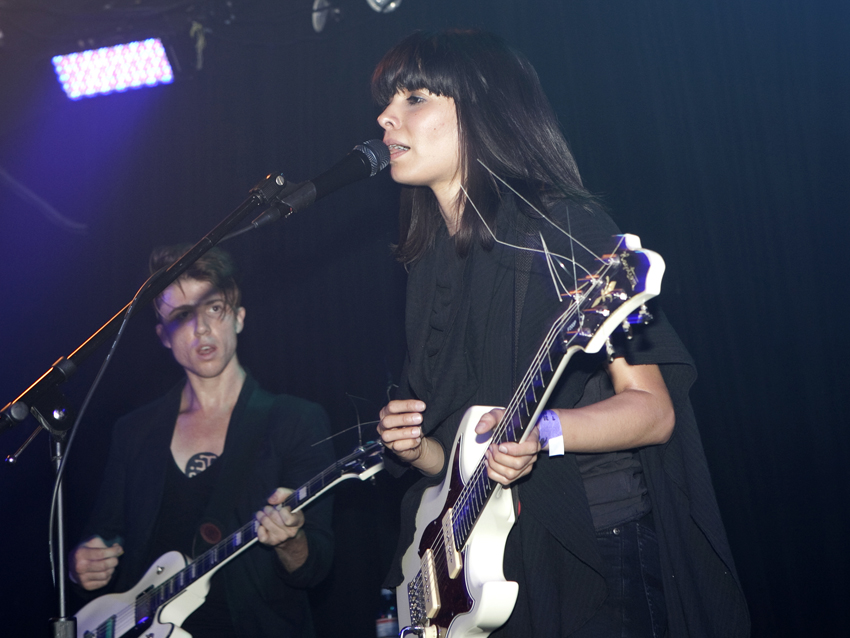
Hagstrom fans Curtis and Dehezaon on stage in New York City, 2010. © Francine Daveta ./Retna Ltd./Corbis
What about pedals? You have been something of a stompbox enthusiast.
"It's probably not the coolest thing in the world because it's not boutique, but I just love the Line 6 M13 [Stompbox Modeler]. I know everybody's using it, but man, it's just great. There's a reverb on it called 'Particle Verb,' and it's a sound I've been trying to make for years. It sounds like a drunken London Symphony Orchestra or something like that."
How about software or plugins - anything essential that you used on the record?
"The SoundToys plugins are incredible. They have one called an EchoBoy, and it's just the greatest delay. It's beautiful. I've never been a fan of delay sounds that I can get on my computer, but this one is amazing. I wish they would put it in a pedal so I can use it live.
"Truthfully, I'm not so into programming a computer when I'm making a record. It's like the musical side of my brain dies if I get wrapped up in that kind of thing. The creative process of creating music is so overwhelming that I try not to introduce too much new stuff gear-wise; otherwise, that's all I'll think about."
What system do you record to?
"I use Logic. Since our first record, that's what I've used. It's kind of second nature at this point. It's super easy."
To what lengths do you go to re-create your songs live? Do you have to strip away arrangements at all?
"It's hard. I definitely have to fake some of the guitar stuff, hiding behind distortion and delays. I find that I imply a lot of the parts I've come up with. Making a record, I'll fall in love with a piece of production that's pretty impossible to do live. Some things are just not in the instrument, no matter what, so it's a matter of picking and choosing what's really important. I think the audience doesn't want something perfect anyway; they still want a live experience."
Joe is a freelance journalist who has, over the past few decades, interviewed hundreds of guitarists for Guitar World, Guitar Player, MusicRadar and Classic Rock. He is also a former editor of Guitar World, contributing writer for Guitar Aficionado and VP of A&R for Island Records. He’s an enthusiastic guitarist, but he’s nowhere near the likes of the people he interviews. Surprisingly, his skills are more suited to the drums. If you need a drummer for your Beatles tribute band, look him up.
“I remember thinking: ‘Wouldn’t it be great if I could ask Sting to sing that line?’ Suddenly someone said: ‘Sting’s here on holiday! He’s on the beach!’” How Mark Knopfler got lucky with Money For Nothing
“He’s all right, he’s on tip-top form. We can’t wait": Noel and Liam Gallagher perform together behind closed doors for the first time in 16 years

